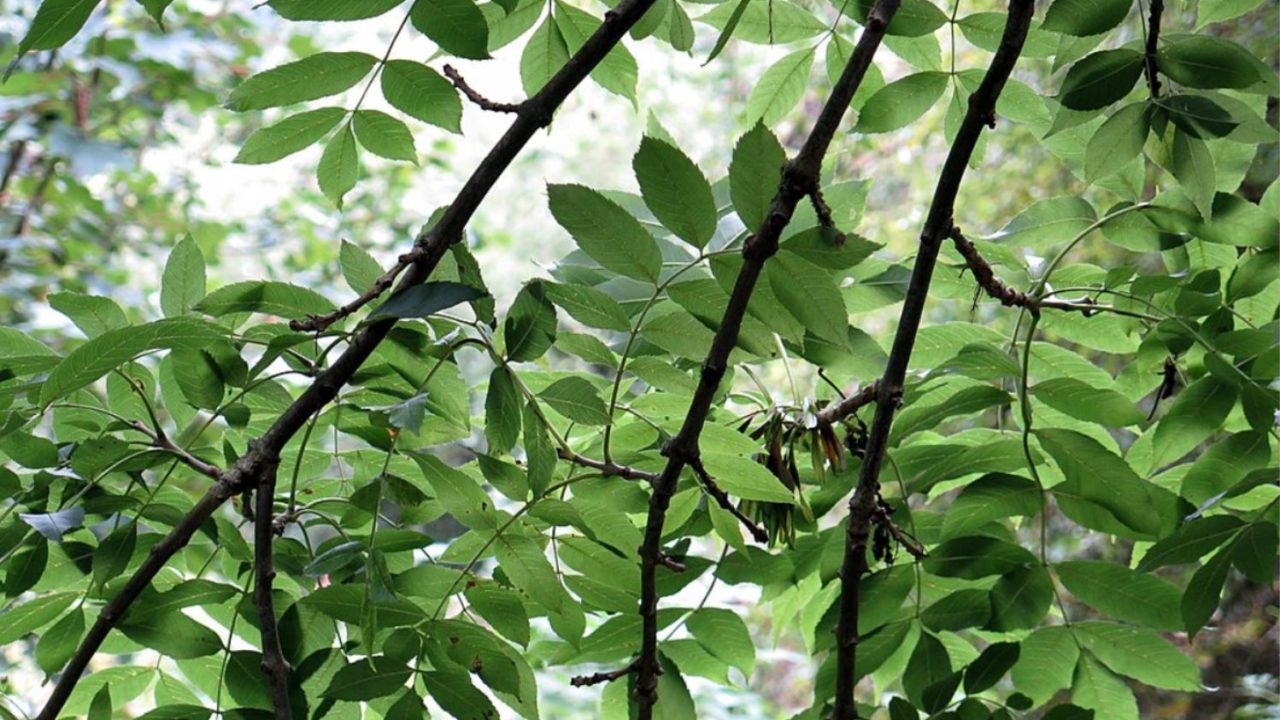An independent review of support for farmers impacted by ash dieback has said that the tree disease “needs to be treated as a national emergency”.
The review – which was commissioned by Minister of State for land use and biodiversity Pippa Hackett – said that ash dieback requires a state-led national and rapid coordinated response.
It called for the establishment of a task force, led by the Department of Agriculture, Food and the Marine, which should include a dedicated department team, landowners, and forest industry stakeholders to oversee and coordinate the “safe and comprehensive clearance” of diseased plantations and re-establishment of new ones.
This task force should lead a coordinated approach to clearing diseased plantations on a county or regional level, it said.
Review of ash dieback support
The review, which was commissioned in early June, was published today (Tuesday, October 3).
In terms of supports for impacted ash plantation owners, the review called on the department to re-examine communications from the European Commission on state aid in order to find the “broadest possible scope” to provide support to resolve the ash dieback “crisis”, mitigate the risk of further tree disease, and re-establish the forestry potential of those lands.
The review suggested a once-off payment to be made to each affected landowner “as recognition of the absence of an effective scheme between 2018 and 2023”.
It also calls for a simplified approval process for site clearance, and for the dedicated department team, as part of the recommended task force, to carry out the necessary assessments.
According to the review, it should be made clearer that the cost of site clearance and regeneration should be borne by the state, with any remaining value from the timber staying with the landowner.
The review said that the current clearance grant of €2,000 is reasonable, but additional “exceptional costs” should be considered for particularly challenging cases.
It also calls for government to look at current costs for re-establishment and maintenance of new ash plantations, taking into account “the need for more intensive and regular maintenance due to the particular challenges associated with re-establishment”.
It must also be more clearly communicated that plantation owners are eligible for all available schemes in the new Forestry Programme, and a bespoke ash dieback re-establishment annual payment is required, the review said.
Other key “recommendations of action” outlined in the review include:
- Using ash dieback as a learning opportunity to plan for future disease and invasive alien species risks. This should take place at an all-island level;
- Developing a new partnership and risk-sharing approach to forestry on private land that recognises the “inter-dependence” in the system between landowners, consultants, contractors, state bodies, and government agencies;
- Completing an internal organisational review to create an upgraded forest service with “a strong customer focus”.
The review said that the department should form an implementation plan to put these recommendations into action, and that this should be incorporated into the governance structure for the Forestry Programme.
“We cannot overemphasise the need for rapid action as standing trees become more dangerous and less valuable with each growing season,” it added.
The review was carried out by a group comprising Dr. Matthew Crowe, Jerry Grant, and Jo O’Hara.
Commenting on the publications of the review, Minister Hackett said she is now working with her officials to implement its recommendations.
“While a number of the recommendations are already in hand, the review group has highlighted certain recommendations as requiring further examination and investigation, in particular in the context of the application of EU state aid rules,” she said.
“My department is currently assessing these matters, and I have committed to publishing a full implementation plan in response to the review group’s report once this work is complete,” she added.
Minister Hackett said: “It is important that remaining ash plantations are cleared without undue further delay, so I would strongly encourage affected landowners to apply to the…reconstitution scheme with improved site clearance rates if they have not already done so.”
“I also want to stress my clear intention that any forest owner who applies to this scheme, or who availed of the 2020 reconstitution scheme, will not be disadvantaged by any changes made as a result of the independent review process,” Minister Hackett added.
